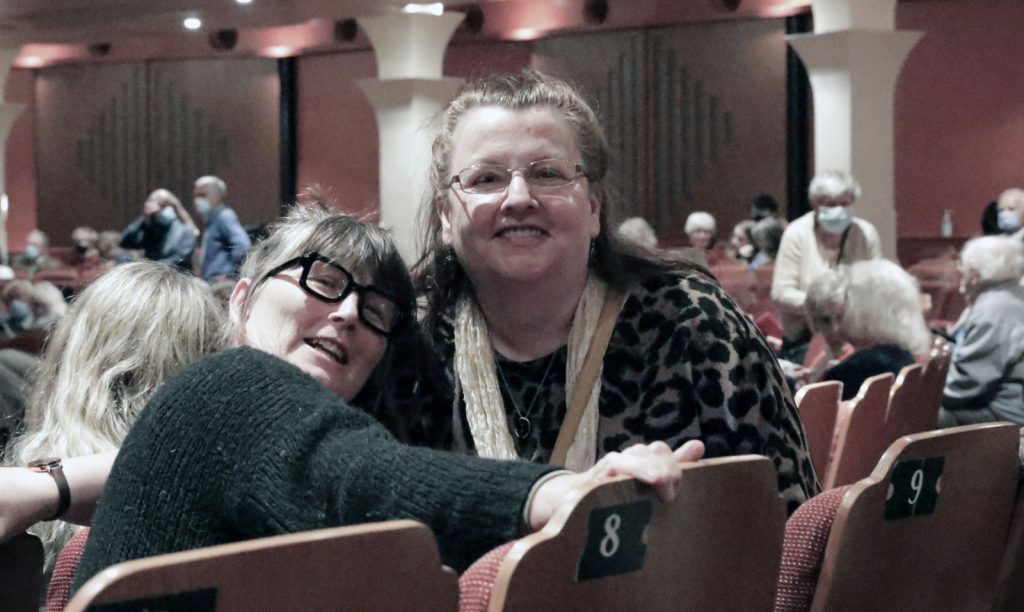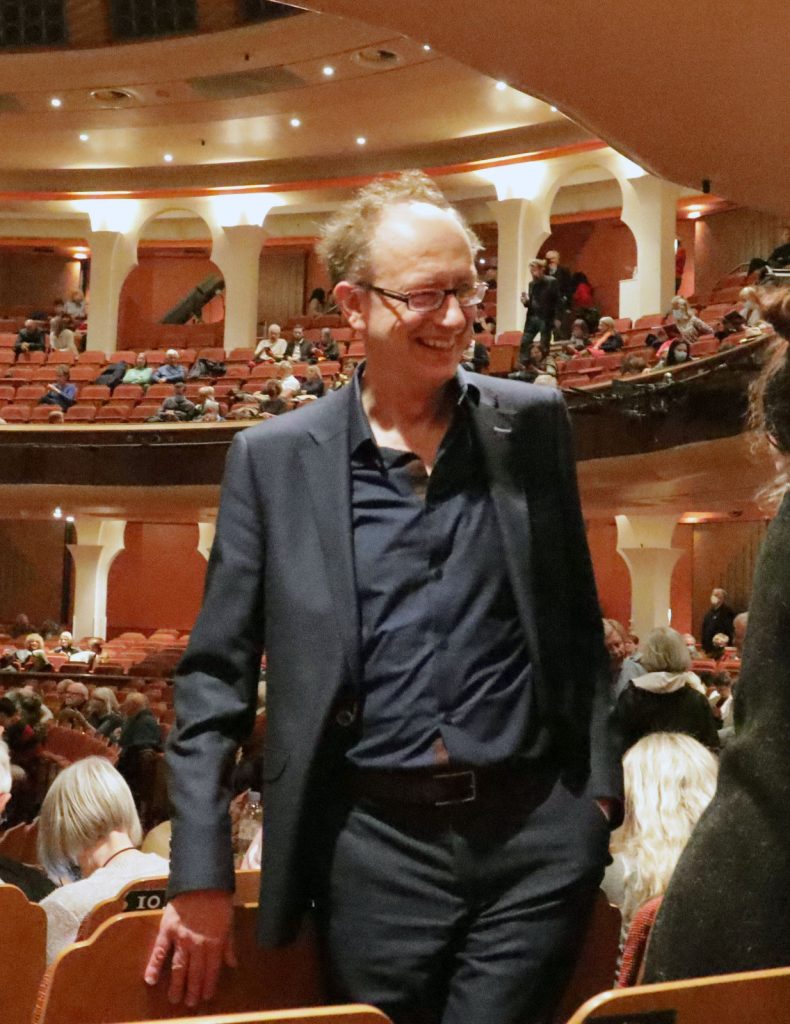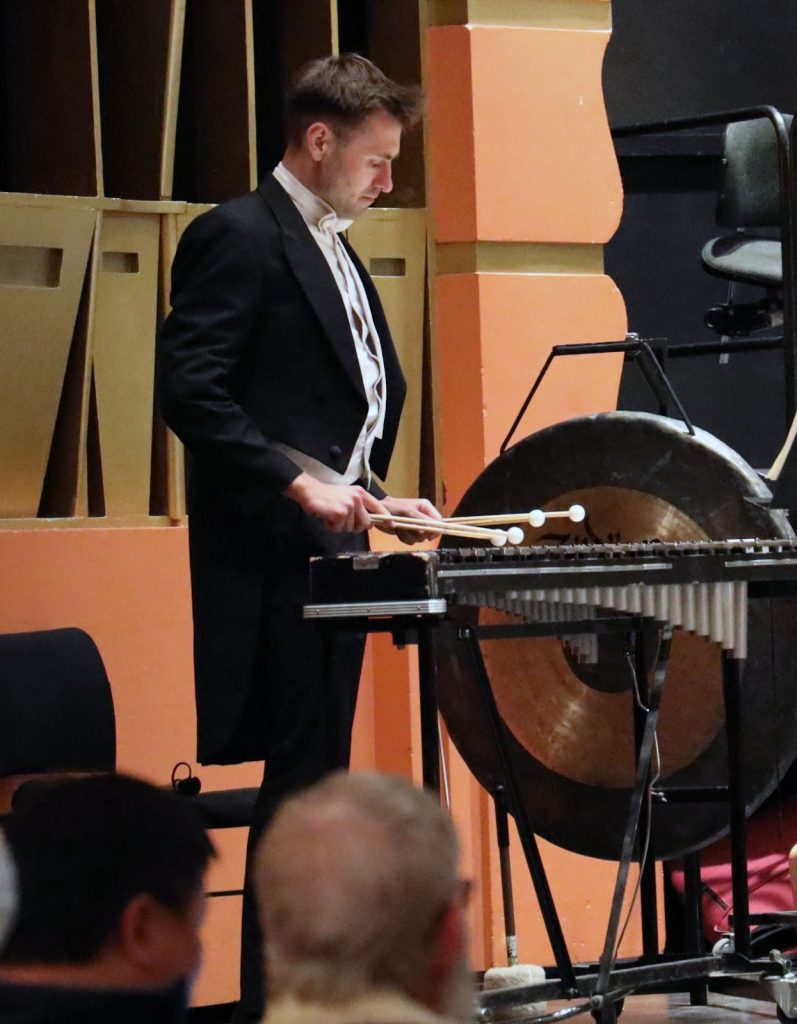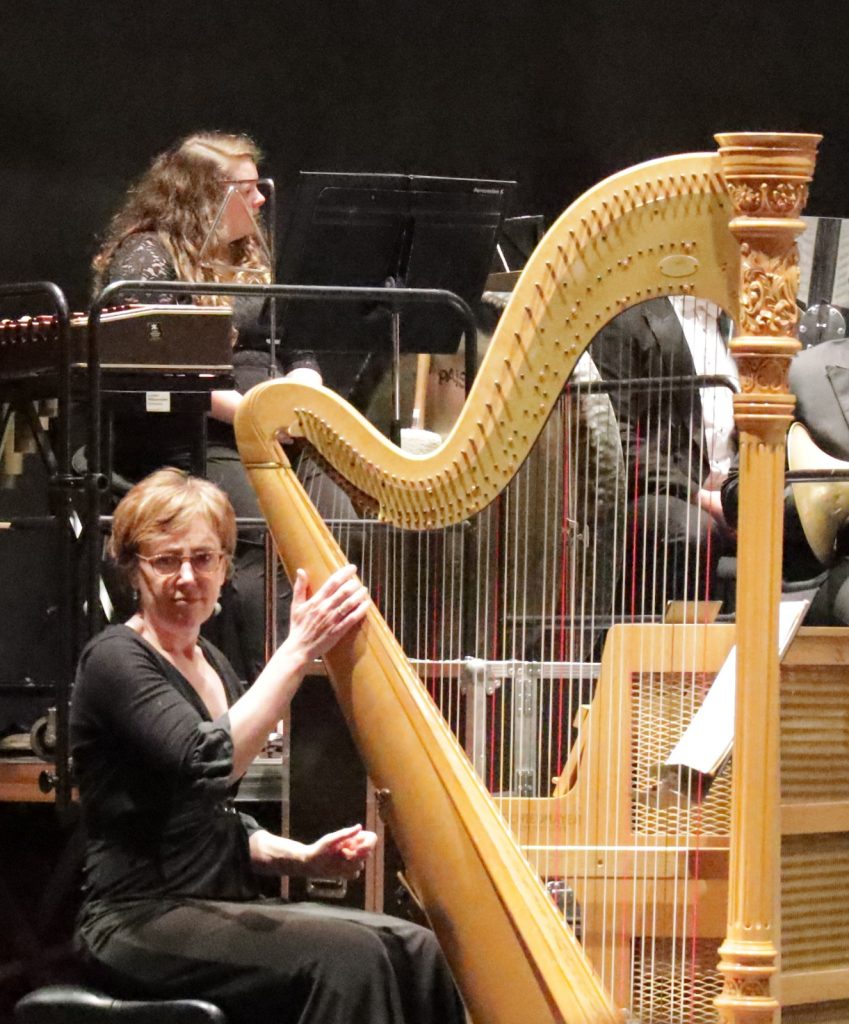The global Covid 19 pandemic was difficult on many fronts, and the closing down of public spaces meant concerts became impossible. Now performers are returning, and this April, the New Note Orchestra went to the Brighton Dome to watch The London Philharmonic Orchestra and experience the power of live music.
Recorded music was only invented at the turn of the 20th century, so it is as a live experience that for centuries humans have experienced music. From the early days of travelling bards and campfire singing, from the first paid concert in London in the late 1600s to the birth of the rock concert, and the modern music festivals, the live experience has become something special to so many people. But what makes live music so special?
A powerful force
Even now, with advanced digital recording techniques and affordable home audio systems, there is something different about how we experience a live instrument. Seeing a person physically interact with an object to create a pleasing sound can be a profound experience. Whether it be a skilled guitarist banging out riffs, or a string section working in unison to create a soaring melody, the spectacle of watching some amazing being created in real time, right in front of your eyes can be incredibly exciting.
But of course, it’s not just a visual treat. Music just sounds different live. It could be in a great concert hall, such as the one at the Brighton Dome, where New Note Orchestra watched the London Philharmonic Orchestra last Saturday in a program that consisted of Mussorgsky, Glazunov and Ravel. It could also be a dark cellar where you watch your favourite punk band, or even an outdoor festival. It’s debatable as to whether all music is better live, but a good orchestra playing in a well designed space offers the listener nuances in sound that can often be lost in recordings.
High fidelity
When we listen to recorded music certain things can be lost. The quietest sounds of a subtle symphony can be buried in vinyl crackle or MP3 compression, while the loudest sounds will distort. Yet with a live orchestra, for instance you can experience the full dynamic range and with it all the subtle emotions of a piece.
The same goes for the timbre, or the character of an instrument. Complex sounds are made up of different frequencies, which might not always be captured in a recording, due to the physical restrictions of mediums like vinyl or MP3s. In the presence of a real violin or harp though, and you get the full range of tones and harmonics. Even the physical space itself adds something, as you experience the subtle unique reverbs and directionality that you simply don’t get sticking your earbuds in on a busy train.
Open your ears
Many people find that going to concerts with friends and groups helps them to discover music that they wouldn’t normally listen to. Following the concert on Saturday, Sally-Anne, glockenspiel player and one of the newest members of the New Note Orchestra said after the concert on Saturday, “It wouldn’t normally be my cup of tea, but I was blown away by the performance. Just the passion of the players, the high standards, the way it was worked out meticulously. It was beautiful to watch. I had not been to the dome since pre-covid, so it was a joy to be back.”
The difference between recorded and live music can be thought of like a photograph of a sunset and an actual sunset. The photograph may be well shot, even enhanced, the colours could be as sharp as the most expensive film, but it’s never quite the same as real life.
Let’s get together
The experience of being in an audience is also a valuable one. We live in a world where we are becoming increasingly atomised, especially when so many of us experienced separation from friends and family during the pandemic. Communal experiences can be a break from everyday isolation. These are moments when we are all experiencing the same thing – maybe it’s singing a song or dancing together. Maybe, it’s the emotional twists and turns of a dynamic piece of music.
Whether with the group you went to the concert with, or maybe with the larger audience, the live experience helps us connect with the people around us. Not only that, but the US National Library of Medicine has done studies that suggest the benefits of attending live music events include decreased stress and anxiety, more willingness to be social, increased energy and an overall better quality of life.
“One of the tools I use in my addiction/mental health recovery is to look at what feeds my spirit – what experiences help me to feel more authentic, spontaneous and joyfully alive,” said Sally-Anne “These are all qualities that don’t come naturally to me, and for a limited time I obtained drinking and using – but falsely so. Music to me feeds my spirit, it energises me and raises my vibrations and sometimes I have to be careful what I listen to as the genre, tempo or noise level really can affect me. I recently relapsed for a short period, and now I’m listening to gentle music – meditation and mantra chanting and Motown. Guaranteed to raise those vibrations and uplift my spirit!”
The challenges we face
Despite all this, the live music industry has faced a series of challenges over recent years – the most obvious being the pandemic. During 2020, about a third of all jobs in the live music industry were lost, as venues saw a 90% reduction in revenues according to a report by UK Music. Many musicians managed to still make a living with live streaming and instruction, but the industry also includes many other important crew members, such as stage managers and sound engineers who also saw their livelihood severely impacted.
Even as many restrictions have been lifted, artists, venues and organisations have struggled with getting insurance as the risk of performers having to cancel due to being infected by Covid has massively increased premiums or made insurance impossible to get. Concert revenues in the UK in 2021 were around £8 million, down from £11.3 in 2020 and £54 million in 2019. All of this has had a direct impact on communities, as for every £10 spent on a ticket for a live music event, £17 goes back into the local economy according to The Music Venue Trust.
New Note back on the road
The New Note Orchestra’s last performance was back in January 2020 when we performed Kind Rebellion at The Old Market. In 2021, our big project was to perform the same piece as a live stream. But this year we are back on the stage, with some exciting performances lined up in July and beyond. So if you love live music, follow us on Facebook or Twitter, or keep an eye on our Blog for news of upcoming performances.
(all photographs by Warner)





